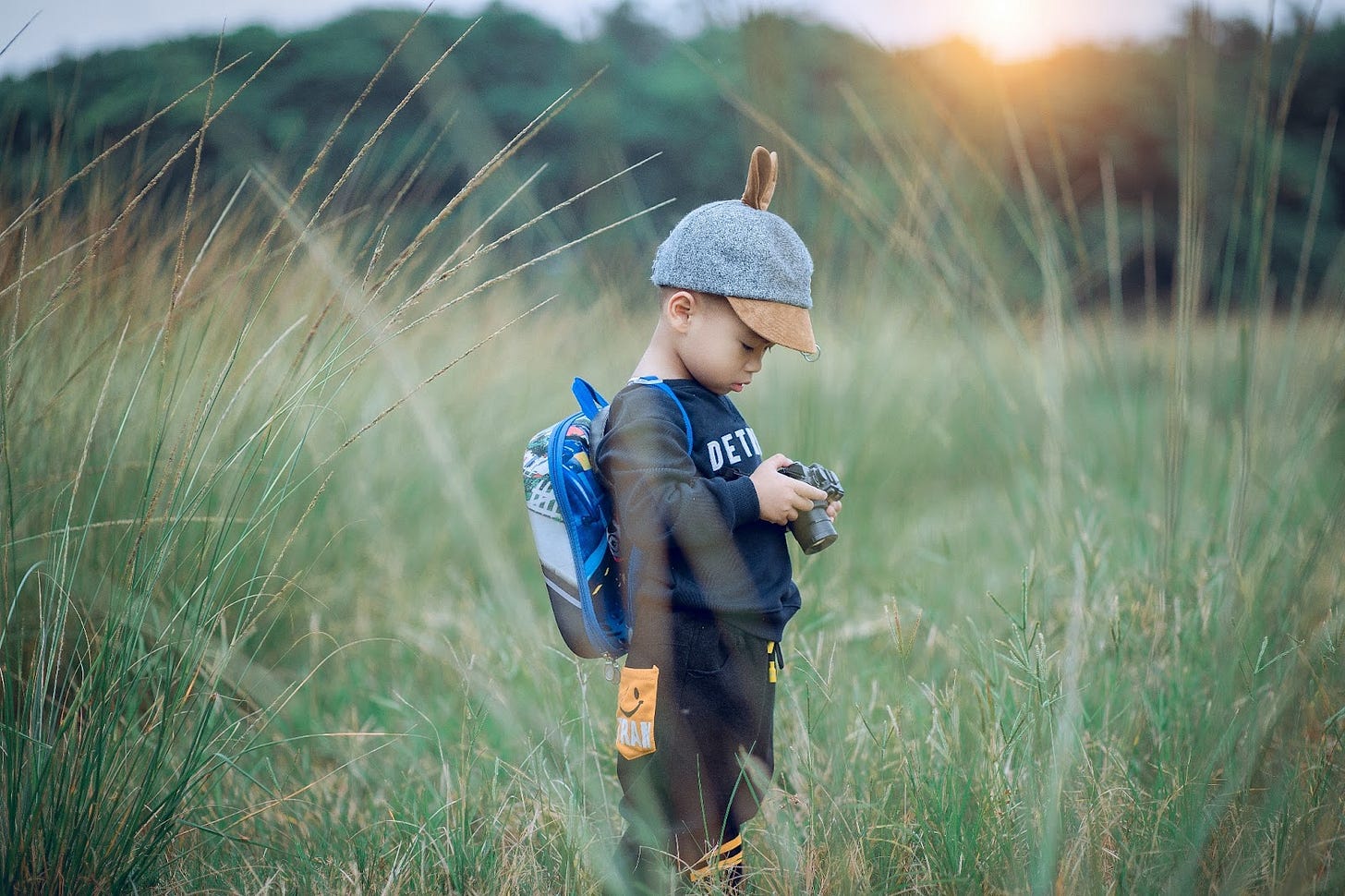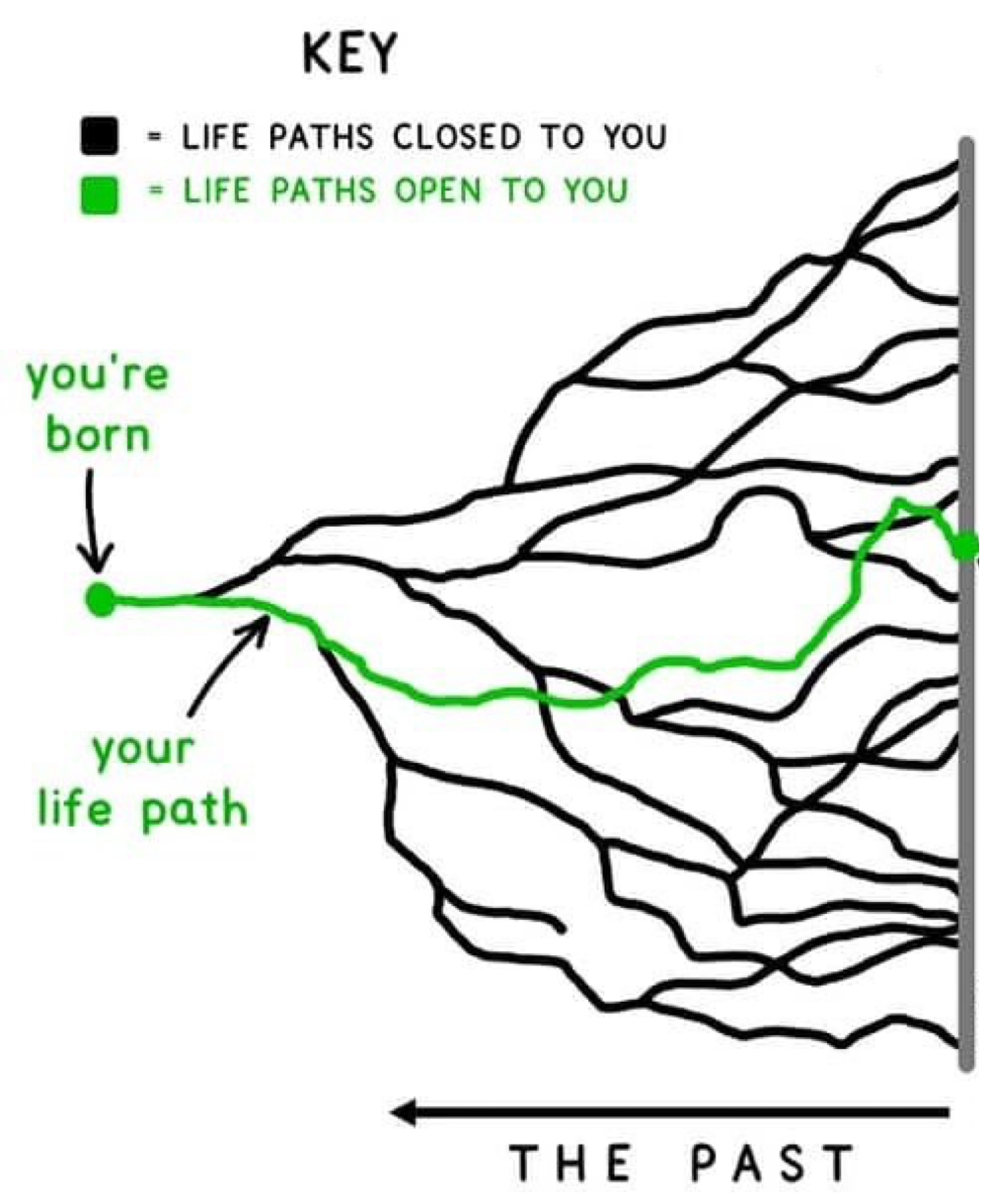Fractal Lives
We are always beginning again
In this week’s issue:
An essay on the fractal patterns of our lives
A video I can’t stop thinking about
Fractal Lives 🍃
When you were a child, what did you want to be when you grew up?
Perhaps an astronaut?
A teacher?
A veterinarian?
I remember my answer: a geologist. As a young boy, I was fascinated by rocks, metals and precious stones. I also loved collecting and organizing things. Maybe I sensed that a career centered on classification as the vehicle for exploring and understanding the world would be a good fit for me.
In the end though, like most, I pursued a different path.
We don’t really take kids’ answers to this question too seriously. After all, what do they know? Asking the question is more like a fun, whimsical game adults play. A way to catch a glimpse into the enigmatic workings of one of the most precious and mysterious things in our world - a child’s mind.
The older I get, the more I’ve come to regard children with a measure of awe and envy. A child, it seems to me, is a human being at the apex of their time-journey on earth. They are like the Alpine skier who stands at the summit of life, surveying the landscape and preparing to carve a path down the mountain. Countless possible routes lie at their feet. They only have to choose a direction, and push off.
Once they start, however, the snow becomes marked by their passing. And previously multitudinous paths collapse into one. In life, as in skiing, every decision which way to go is a decision which other ways not to go.
I’m in my mid 30s now, so my position on the slope is somewhere close to the halfway mark down the mountain. I have made enough choices to be able to look back at my life to this point - the trail I leave carved in the snow behind me - and wonder: “what if?”
What if instead of chasing perfect grades, I had followed my curiosity?
What if instead of resting in the safety of blue chip degrees and jobs, I had tried to write a book or traveled the world?
What if I had been braver and taken more risks?
What if I had taken that geology course - just to see if I’d actually like it?
There is a poem by Swedish Nobel Laureate Tomas Tranströmer entitled “The Blue House” which explores questions of irrevocable choices and alternate lives. It concludes with these lines:
“A motor far out on the water extends the horizon of the summer night. Both joy and sorrow swell in the magnifying glass of the dew. We do not actually know it, but we sense it: Our life has a sister vessel which plies an entirely different route. While the sun burns behind the islands.”
-Tomas Tranströmer, “The Blue House” (1986)
I have always found the idea of the “sister vessels” of my life - the parallel versions produced by alternate choices not taken - to be a deeply poignant one. Like ghost ships, these versions occasionally return to haunt me, drifting at the edge of the horizon. If I’m not careful, it’s easy to become preoccupied with regret: over opportunities not taken, decisions not made.
Where I find refuge is in an expanded perspective:
What I have come to discover is that life paths unfold in fractal patterns. Like the leaves, branches or root systems of a tree, every terminal point is simultaneously the origin of something. And these patterns repeat themselves across small and large scales.
Thus, while certain paths are continuously closing behind us, other possibilities are opening up ahead all the time. There is a sense in which we are always at the cusp of something new.
At this moment in my life, this feels deeply true for me. I don’t know yet what the future holds, but I look towards it with great optimism for what choices are yet to come down the mountain paths.
Parting questions
What did you want to be when you grew up?
In a parallel universe, how your life might have turned out if you had made different choices?
A video I can’t stop thinking about 🇺🇦
On a more somber note, I can’t stop thinking about this video I came across recently from the Wall Street Journal. It shows drone footage of a lone surviving Russian soldier on the battlefields of Bakhmut in eastern Ukraine. The soldier dodges artillery fire and climbs over dead bodies in the trenches, seeking to make contact through the drone camera to surrender to his enemies.
This video struck me for two reasons. First, more than any article, statistic or story I have heard to date, this really drove home what the madness and horror of war might be like for those caught in the midst of it. Second, it makes me reflect on the power of technology to expand our collective ability to enter and inhabit other spaces - other realities - that were previously inaccessible to us.
Truly incredible footage.





